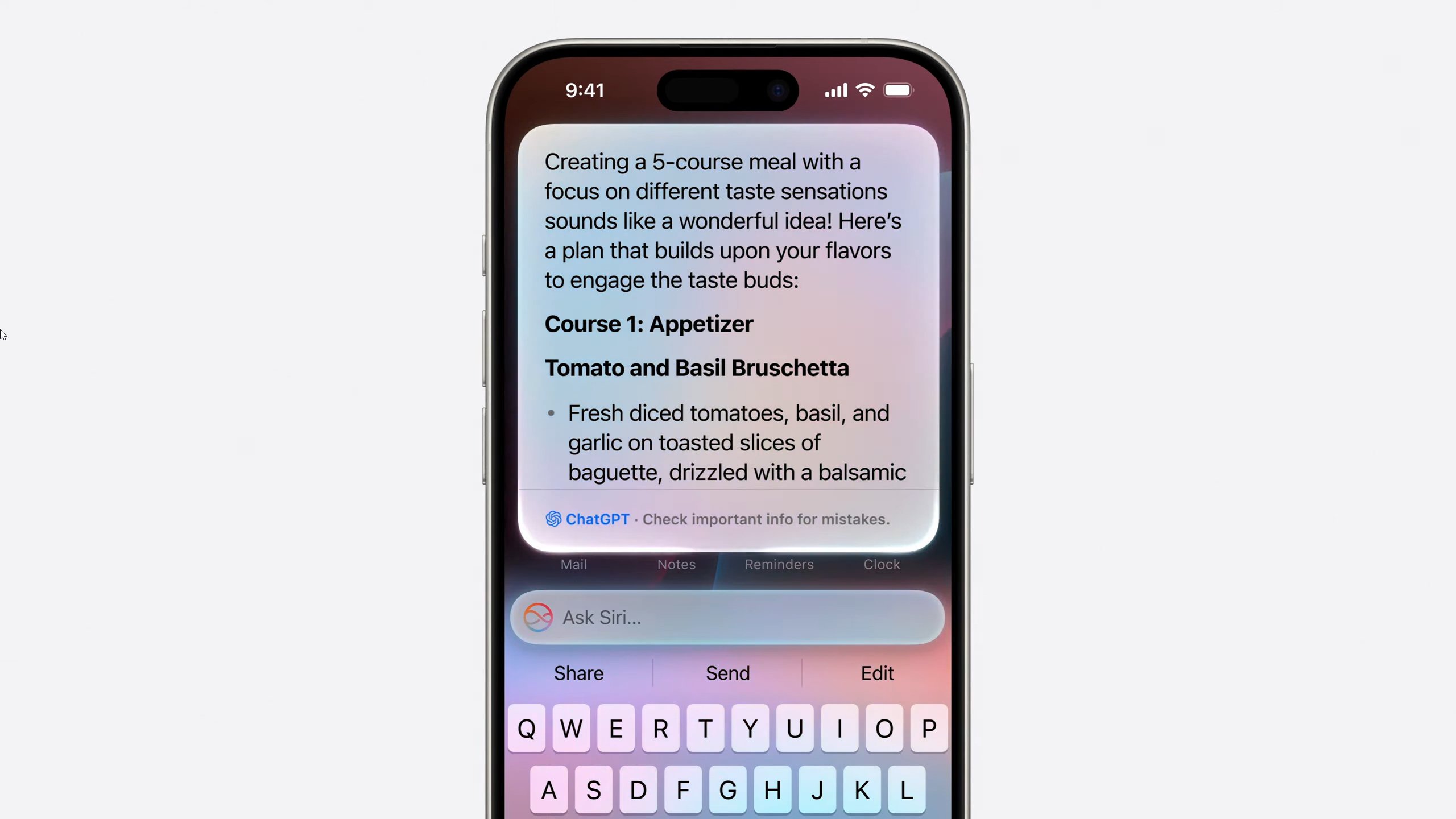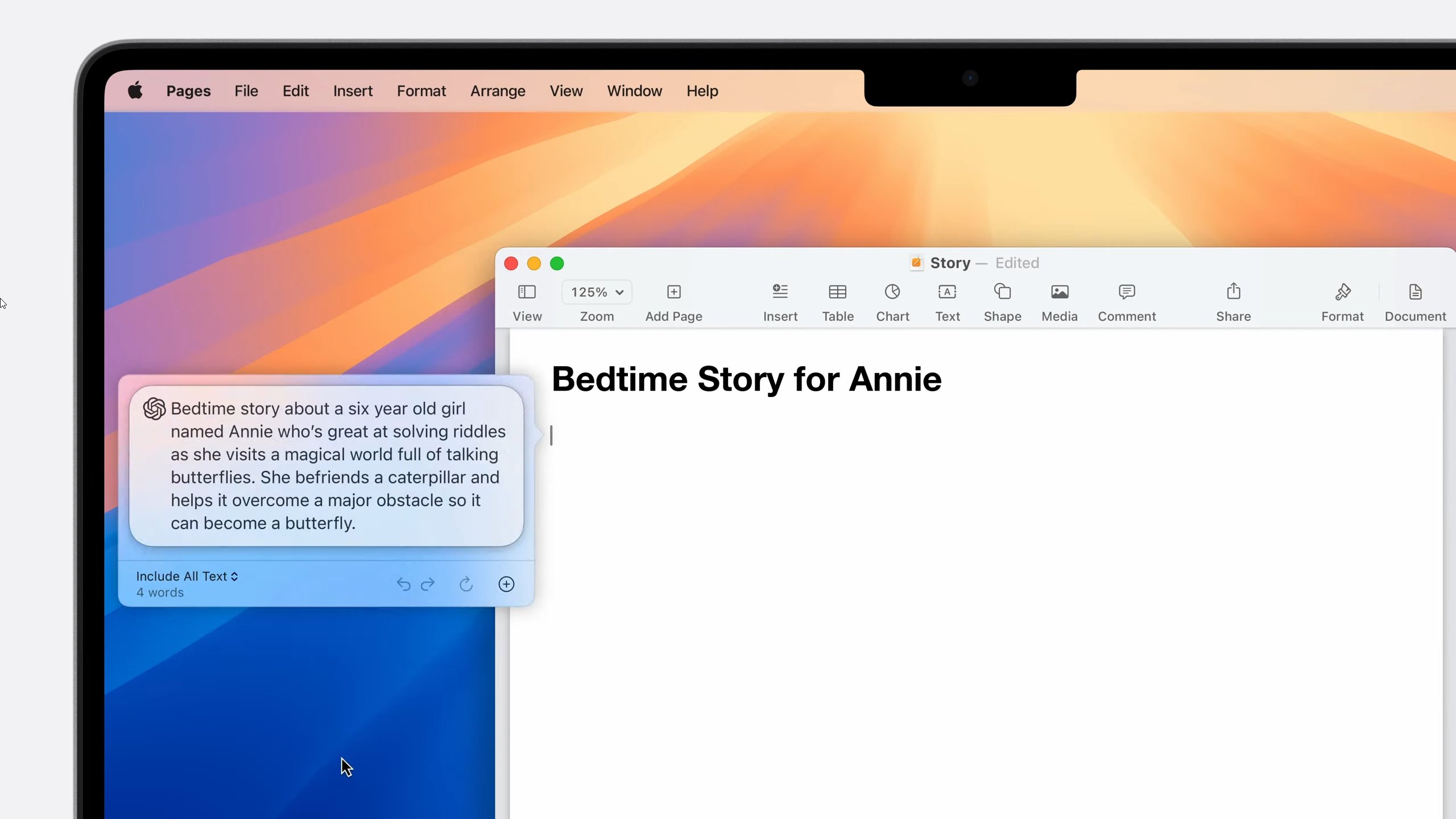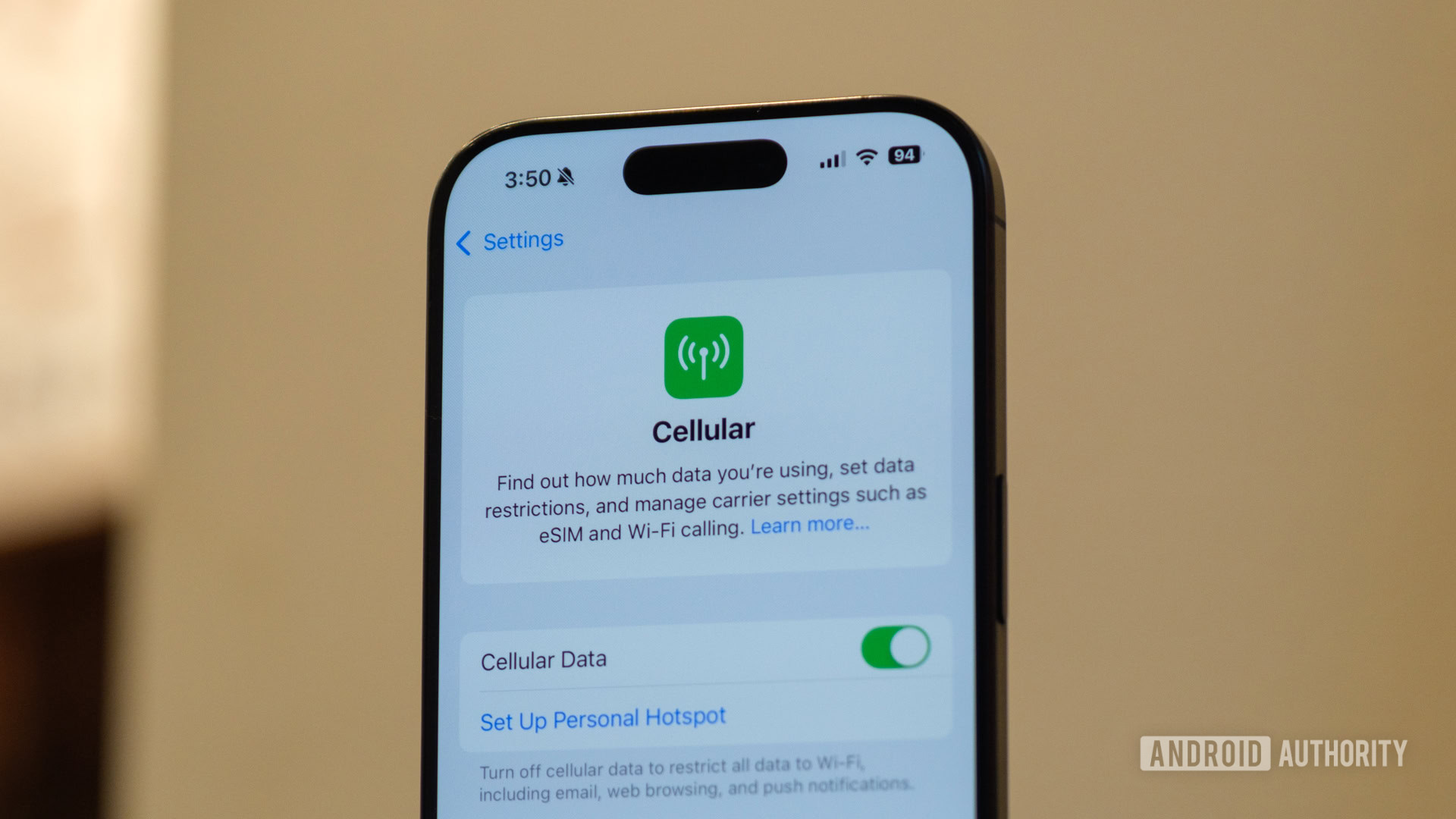TL;DR
- Apple has officially announced a partnership with OpenAI, the startup behind ChatGPT.
- Later this year, ChatGPT will occasionally chime in to answer creative and complex questions when you invoke Siri.
- Siri will ask for your consent before sharing individual prompts with ChatGPT.
After months of anticipation and leaks, Apple has finally announced that it’s teaming up with AI startup OpenAI. The partnership is set to bring ChatGPT-esque smarts to Siri on iPhone, iPad, and Mac. Notably, this ChatGPT integration was only one of several new AI features launched under the banner of Apple Intelligence at the company’s WWDC event today.
When iOS 18 launches later in 2024, you’ll be able to converse with Siri via natural language prompts similar to Google’s Gemini chatbot on Android. This marks a major leap forward for Siri, transforming it from a rigidly structured assistant into a conversational AI chatbot. However, Siri will not rely on OpenAI’s models for most of its responses. Instead, Apple says that it will only pass on select questions to ChatGPT.
Specifically, Siri will decide when it cannot handle a question or command and prompt you to pass it on to ChatGPT instead. You’ll see a pop-up asking whether you’re willing to let OpenAI’s chatbot temporarily handle your question (pictured above). The response will also display a disclaimer that reads “Check important info for mistakes”. Siri will also allow you to share images or documents with the chatbot alongside the usual text-based prompts.

Apple says you won’t need an OpenAI account to use this new Siri-ChatGPT integration. However, it will offer the option to connect your ChatGPT Plus account and unlock paid features such as unlimited access to the GPT-4o language model. For reference, the free version of ChatGPT currently only offers a limited number of GPT-4o responses every few hours.
Beyond Siri, Apple also announced that you’ll be able to invoke ChatGPT in writing tools available across iOS and macOS apps. A new Compose feature, for example, will lean on the chatbot to generate everything from bedtime stories to professional cover letters. This is similar to Google’s Help Me Write feature, which is already available in Gmail and Docs.

This year marks a significant departure from Apple’s usual strategy of keeping AI processing confined to individual devices. Cloud-based language models carry inherent data security and privacy risks. But they’re the only way Apple can realize the full potential of modern-day AI. Cutting-edge language models like OpenAI’s GPT family require computational power at the scale of data centers, not individual smartphones or even desktop computers.
Still, Apple says your requests and data won’t be logged even if you consent to sharing your prompts with ChatGPT. OpenAI’s blog post on the subject also states that users’ IP addresses will be obscured. With these measures, Apple likely hopes to quell any potential privacy concerns. OpenAI’s official ChatGPT app, meanwhile, saves conversations by default and uses them to train future models unless you individually decide to opt-out in the settings menu.
Initial reports suggested that Apple would license Google’s Gemini AI models, but those discussions are reportedly still ongoing behind closed doors. Google holds a unique strength in that it has a slew of different model sizes, some of which are small enough to run entirely on-device. The Pixel 8 and Galaxy S24 series, for instance, use Gemini Nano to power select features like Summarize in the Pixel Recorder app.
Apple already uses on-device AI for tasks such as speech-to-text and a new handwriting replication feature dubbed Smart Script. However, the company’s interest in licensing Google’s models may indicate that it has yet to catch up with Gemini in all aspects.
Got a tip? Talk to us! Email our staff at [email protected]. You can stay anonymous or get credit for the info, it's your choice.






 English (US) ·
English (US) ·